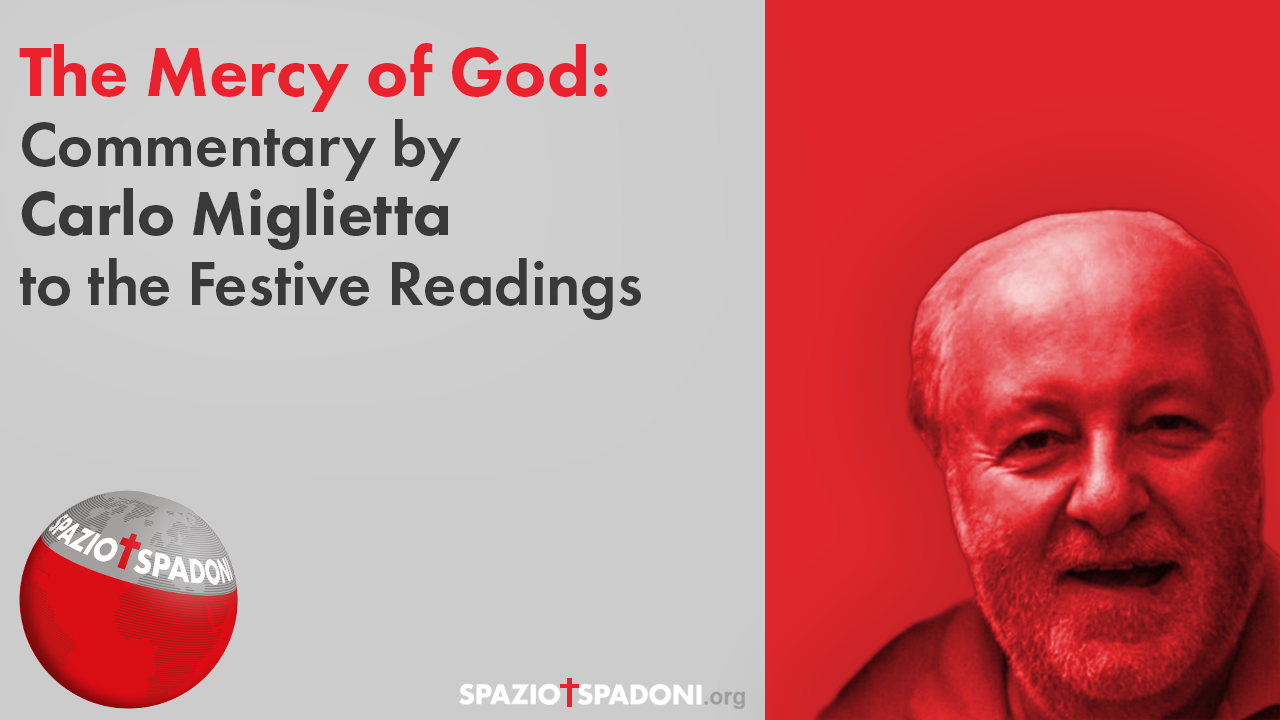
Sunday XXV Year B – Called to be “delivered,” like Jesus
Readings: Wis 2:12.17-20; Jas 3:16-4:3; Mk 9:30-37
Today’s Gospel presents us with the second (Mk 9:31-32) of the three Passion proclamations in Mark: in the first (8:30-33) Jesus, immediately after Peter in Caesarea had recognized him as the Christ (Mk 8:27-29), for the avoidance of misunderstanding “openly began to teach them that the Son of Man must suffer many things (”pollà”), and be reproved.”
In the second proclamation, which the Liturgy offers us today, the key concept is “to be delivered” (9:31): to “be delivered” is to no longer be masters of oneself, it is to accept that others dominate us, it is to become servants, slaves. Jesus “will be delivered up,” like the Servant of IHWH (Is 53:10), the prophets (Jer 26), the righteous (Dan 7:24-28), the Baptist (Mk 1:14).
In the third proclamation (10:32-34) the meaning of this “delivery” (10:33) of the Son will be even better made explicit: “they will condemn him to death,…, they will mock him, they will spit on him, they will scourge him and kill him,” as prophesied already today in the First Reading (Wis 2:12,17-20).
Jesus’ whole life is a “handing over”: in fact, he will be “handed over” to the High Priests (Mk 14:10), to Pilate (15:1-10), to the soldiers (15:15), and he will “hand himself over” in the Eucharist (Lk 22:19; 1 Cor 11:24).
Faced with this prospect, the disciples rebel: at the first announcement, Peter stands beside Jesus, “took him aside and rebuked him” (8:32). But Jesus puts Peter back in his role as disciple, who must walk behind the Master: “Opìso mou!”, “Go after me!”, and calls him Satan, adversary (8:33). And immediately in five sentences he announces the program for those who want to get behind him: the disciple will have to deny, i.e., disown, himself, and know nothing but God’s will (8:34); only in taking up the cross will he be able to follow the Master (8:34); he will have to measure his life not by what he will have but by how much he will be able to give (8:35-37); Jesus will be ashamed of those who are ashamed of his logic (8:38); those who instead “hand themselves over” as Jesus did, will already in this life experience the power of it (9:1).
After this second announcement, the disciples no longer dare to challenge him openly (9:32), but among themselves they continue to “argue about who was the greatest” (9:34). Jesus clearly reiterates, “If anyone wants to be first, let him be last of all and servant of all” (9:35). Even after the third Passion announcement, James and John will go and ask him “to sit in glory one at his right hand and the other at his left” (10:37). And Jesus will reiterate the call to become “servants of all,” following his example (10:44-45).
We smile at such stubbornness of the disciples, such spiritual stupidity. But the evangelists insisted on presenting us with this apostolic foolishness because it is the great temptation of all time for the believer. It is the Church, it is all of us, it is me, who practically reject this logic of God every day. We all want to be first and not last; we all want to “fulfill” and our life and certainly not lose it; we all want to decide about ourselves, and certainly not for others to dispose of us; we all want honors and shun outrage and persecution; we all prefer a life of comfort rather than sacrifice; we all prefer to enjoy than to suffer, to command than to obey, to receive than to give, to be served rather than to serve. No one is in the mood to be “handed over,” to become “a man for others,” a possession of others, which everyone can use; no one is in the mood to “empty himself” for others, to lose himself for them, to be consumed, eaten by others, to become “the last and the servant of all” (9:35)…
Yet we are called, the Second Reading tells us (Jas. 3:16-4:3) to a life “first of all is pure, then peaceable, meek, yielding, full of mercy and good fruits, impartial and sincere”: to live, that is, like Jesus!
